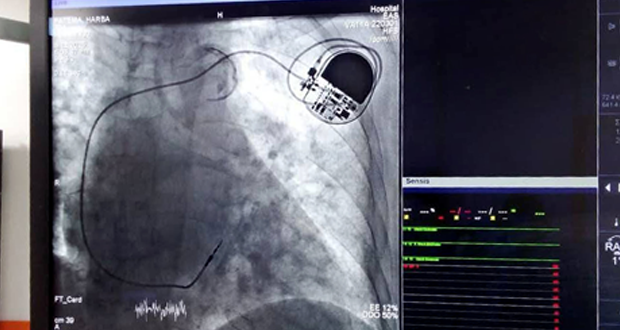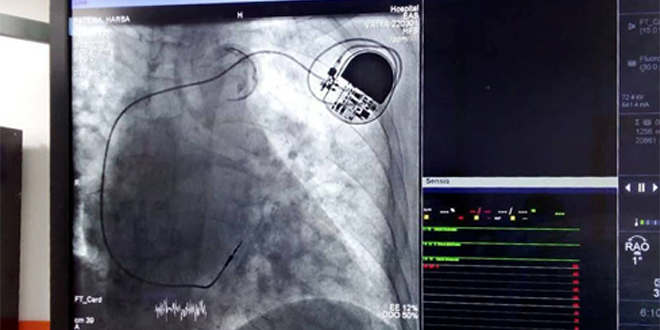المغنيسيوم معدن أساسي يلعب دوراً حيوياً في صحة الجسم، لكن هل نحتاج حقاً إلى تناول مكملات المغنيسيوم؟ وما هي الكمية المناسبة؟
وفقاً لـ "فوكس نيوز"، يشارك المغنيسيوم في أكثر من 300 نظام إنزيمي، ويساعد في إنتاج الطاقة، ووظائف العضلات والأعصاب، وتنظيم ضغط الدم.
يؤكد خبراء الصحة أن المغنيسيوم يساهم في تقليل خطر الإصابة بأمراض معينة، وتحسين النوم، وتخفيف التوتر والقلق، ومنع تقلصات العضلات الليلية.
توضح الدكتورة هيذر فيولا من نظام "ماونت سيناي" الصحي أن المغنيسيوم "يدعم استقرار ضربات القلب، ويعمل مع الكالسيوم وفيتامين (د) للحفاظ على قوة العظام، ويساعد في حساسية الإنسولين واستقلاب الغلوكوز".
وتضيف الصيدلانية إيلينا كواتروتشي أن المغنيسيوم قد يخفف الإمساك، ويقي من الصداع النصفي، ويخفف أعراض متلازمة ما قبل الحيض.
علامات نقص المغنيسيوم:
تشير الإحصائيات إلى أن الكثيرين لا يحصلون على كمية كافية من المغنيسيوم، مما قد يزيد من خطر الإصابة بالأمراض مع مرور الوقت. وقد يعاني ما يصل إلى 15% من سكان الولايات المتحدة من نقص المغنيسيوم.
يزيد نقص المغنيسيوم من خطر الإصابة بارتفاع ضغط الدم، وأمراض القلب والأوعية الدموية، وداء السكري من النوع الثاني، والصداع النصفي، وهشاشة العظام.
تشمل الأعراض المحتملة: الأرق، وتشنجات العضلات، والإمساك، والغثيان، والقيء، والتعب، والضعف، والخدر، والوخز، والتغيرات الشخصية، وعدم انتظام ضربات القلب. وفي الحالات الشديدة، قد يحدث نقص كالسيوم الدم أو نقص بوتاسيوم الدم.
يمكن لفحوصات الدم الكشف عن المستويات المنخفضة، لكن الدكتورة فيولا تحذر من أن هذه الفحوصات ليست مثالية لأن معظم المغنيسيوم يوجد داخل الخلايا.
قد تساهم بعض الحالات الطبية، وإدمان الكحول، وبعض الأدوية، واتباع نظام غذائي يفتقر إلى هذا المعدن في نقص المغنيسيوم.
تقول سو-إيلين أندرسون-هاينز: "قد يصاب الأشخاص المصابون بأمراض الجهاز الهضمي، مثل الداء البطني أو داء كرون، أو أولئك الذين خضعوا لجراحة تحويل مسار المعدة، بنقص المغنيسيوم".
ما كمية المغنيسيوم التي نحتاج إليها؟
تتراوح الكمية الغذائية اليومية الموصى بها من المغنيسيوم بين 310 و320 ملغ للنساء البالغات، و400 و420 ملغ للرجال البالغين.
توضح أندرسون-هاينز أن "معظم المغنيسيوم يوجد في النباتات، مثل المكسرات والبذور والفاصوليا". وتشمل المصادر الأخرى: زبدة الفول السوداني، والموز، والأفوكادو، واللوز، والفاصوليا السوداء، والخضراوات الورقية، والحبوب الكاملة، والزبادي، والشوكولاته الداكنة.
يؤكد الخبراء أن المصادر الغذائية هي الأفضل لتلبية الاحتياجات اليومية، ولكن يُنصح بتناول المكملات الغذائية في بعض الحالات، مثل وجود نقص معروف أو حالة صحية تسبب فقداناً مفرطاً للمغنيسيوم، أو عند تناول أدوية معينة.













